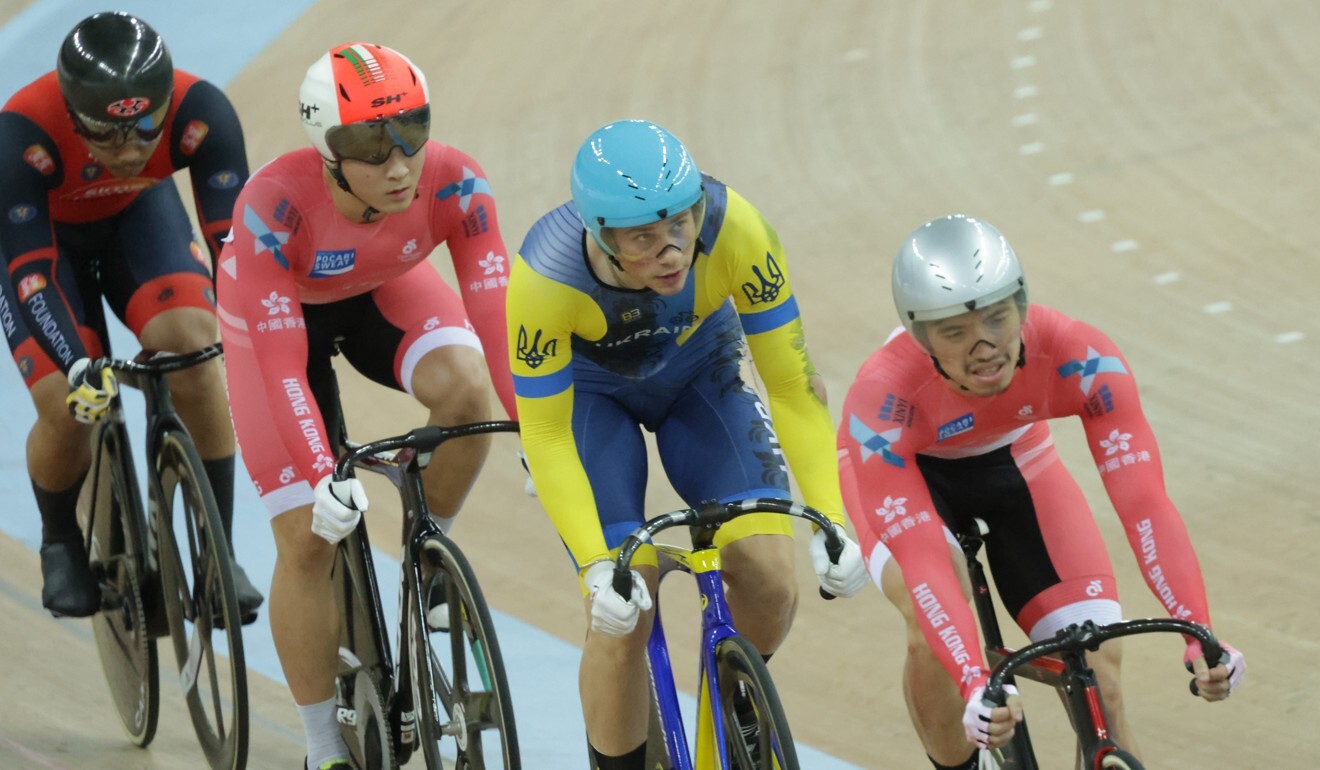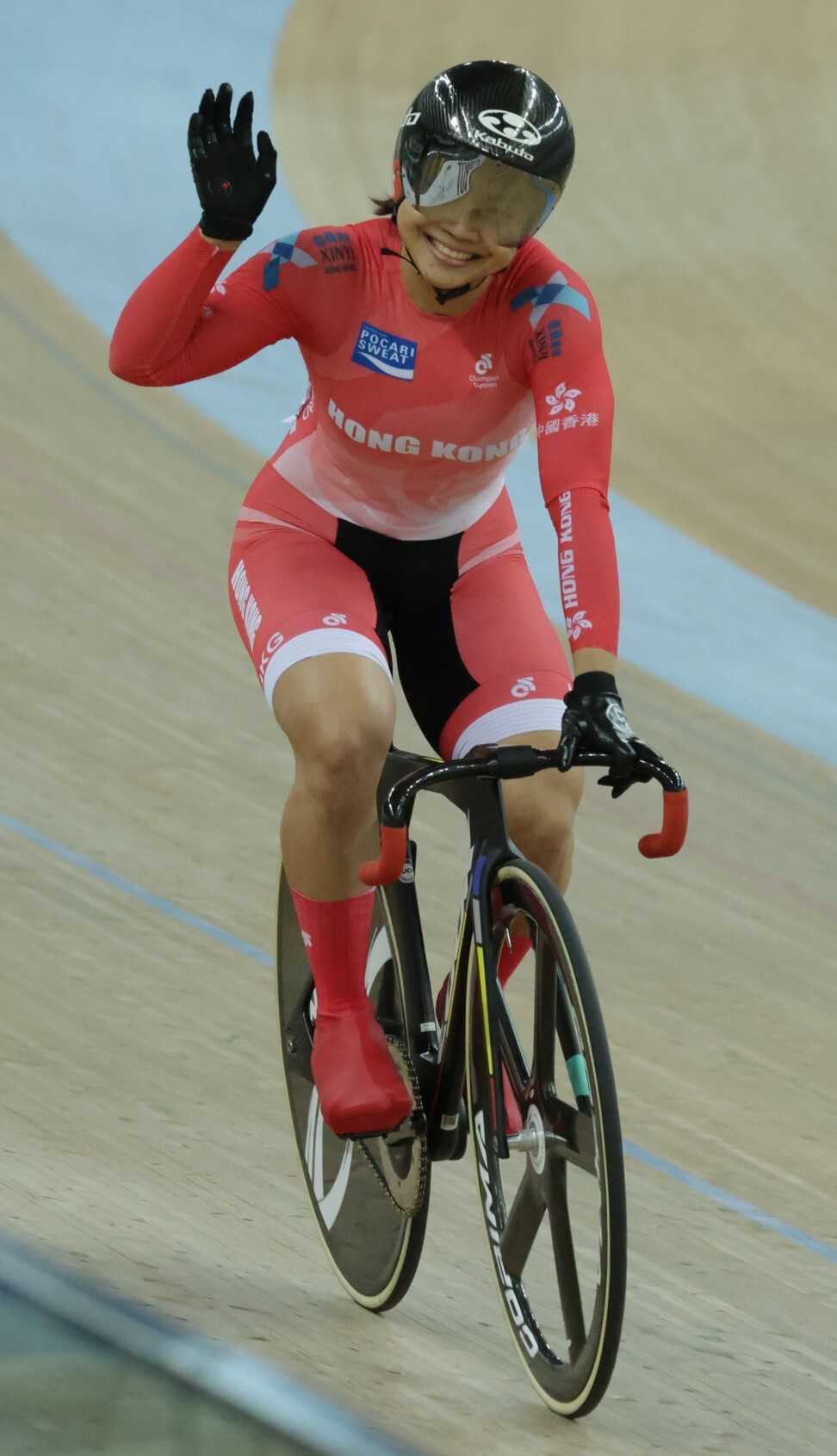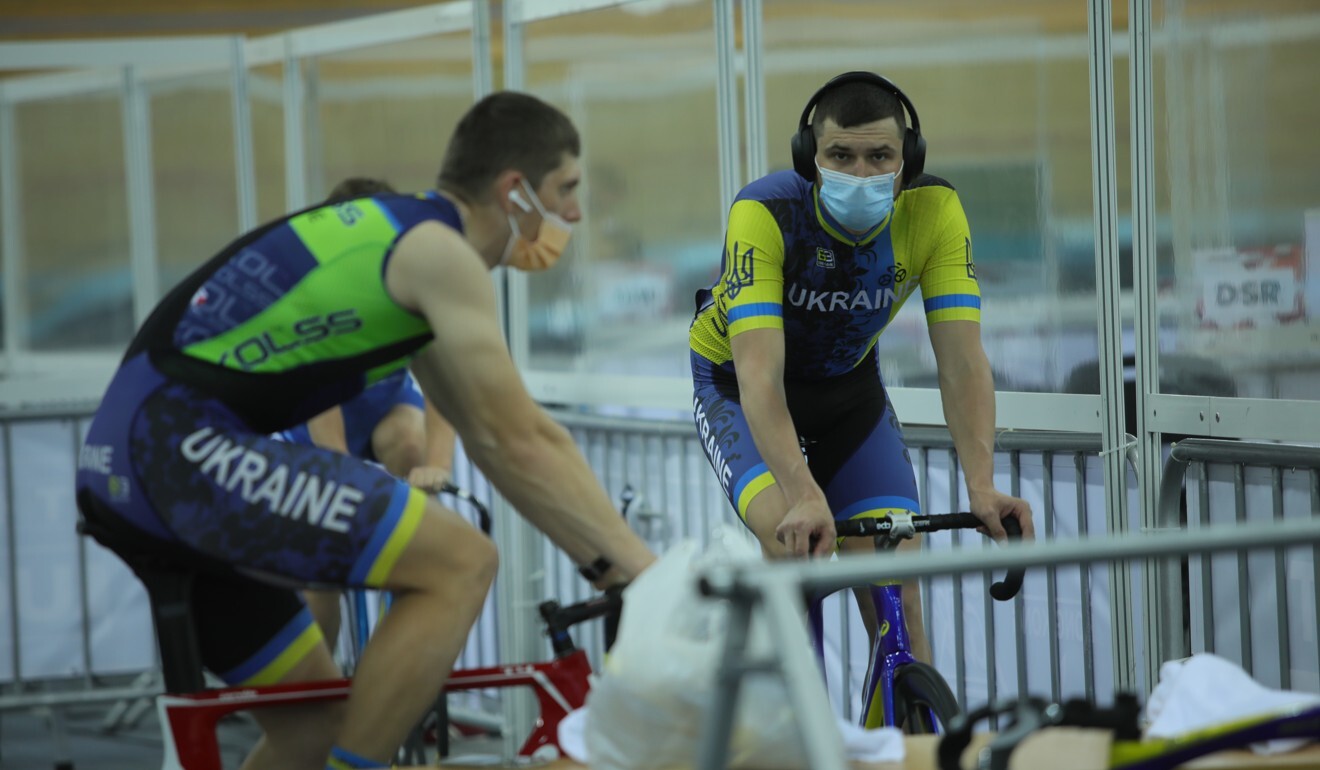
Inaugural UCI Track Cycling Nations Cup shows it’s time to welcome (some) international sport and spectators back to Hong Kong
- The Velodrome’s ‘live bubble’ is proof that the city can adapt world-class events to Covid-19 times as cases peter out
- Hong Kong’s top cyclists rue lack of atmosphere without fans – surely government can meet somewhere in the middle?
No spectators, strict athlete, medical and media bubbles and disinfectant spray-downs with each lift journey. Those tuning into the UCI Track Cycling Nations Cup on TV this weekend will unlikely see such a sterile sporting spectacle again.
As the city’s Covid-19 numbers continue to drop – local cases have been around zero for the last two weeks – and sports events organisers perpetually tweak pandemic-era playbooks, might it be time to reintroduce similar-scale events?

The four days of the Nations Cup were flawless from an organisational and Covid-protocol standpoint given the prearranged social distancing and negative test regulations. The media was limited to one stand and could not conduct in-person post-race interviews, while athletes and staff were essentially on a train/compete/rest cycle in the Velodrome.

“Probably because last year I spent three months [locked down] in the Hong Kong Sports Institute so I’m used to it all [the hygiene protocol and lack of interaction]. There are some inconveniences, like when taking the lift you have to wait for the previous nations’ team to go up, then the cleaners come in, so you lose a bit of rest time. But it’s doable and I appreciate all the tough work the workers had to put in,” Lee said.
“I did think [the Velodrome] lacked a bit of atmosphere. This is the second time I’ve competed here – there was definitely a difference with fans in attendance in 2018 – but at the same time we just tried to remember our strategy,” the 20-year-old said in a virtual post-race interview, adding that there was less excitement in the air due to only being allowed to nod at familiar faces.

“But we had more peace of mind because we were competing separately from other teams so it felt safer. Every time we got on and off our bikes, everything was also cleaned well.”
While it is difficult to quantify the impact that spectators have on competition, the mental boost received from a home favourite dominating competitions or defying the odds is undeniable.

Nations Cup organisers intentionally provided dozens of reassuring video clips of coaches spraying bikes, stadium staff wiping tracks, and medical staff operating sanitation machines in their familiar turquoise gowns and visors. Meanwhile, athletes could train away in their subdivided areas in the knowledge that they were probably in the safest domain they have been in for months.
“The fact that all of you are here – most having travelled from different parts of the world – is testament to the tireless hard work of our organising committee, our association and various government partners who have come together to make sure Hong Kong makes the most of this opportunity. It was not easy,” said president of the Cycling Association of Hong Kong Raymond Leung Cheong-ming at the virtual opening ceremony.
The live bubble over the past few days and during the competition is the result of intensive discussion with the government and health experts to ensure that all participants are in a completely safe environment and can concentrate on their performances.”

Don’t be mistaken: a jam-packed, mask-less Hong Kong stadium is still a long way away given the plateauing number of public vaccinations and the continual postponement of continental travel bubbles. But Hong Kong should be very confident in welcoming regional and international sport back so long as a Nations Cup-like strategy is implored.


